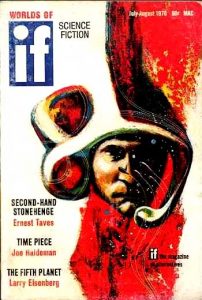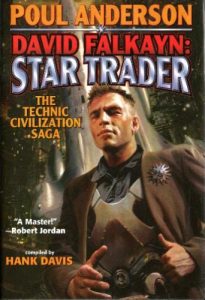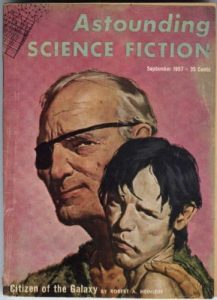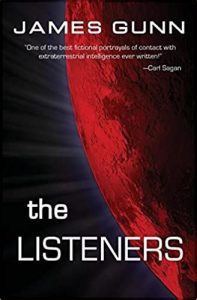 The post the other day about James Gunn motivated me to read some of his work. I started with The Listeners. I had a copy in my office at work that I had picked up at a Friends of the Library sale. I quite enjoyed it.
The post the other day about James Gunn motivated me to read some of his work. I started with The Listeners. I had a copy in my office at work that I had picked up at a Friends of the Library sale. I quite enjoyed it.
The premise is that a program is begun that listens for signals from another solar system. I thought the way the signals were confirmed to be from an intelligent species was extremely clever.
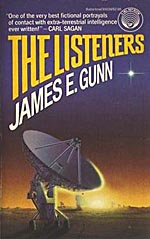 This isn’t an adventure novel. Rather it’s one that tries to extrapolate one possible way a listening program might play out. (The Listeners was written before SETI began.) It’s a patch-up novel of a series of novelettes that were published in the late 1960s and early 1970s. It deals with how the people working on the project would be affected by it and how society, religion, and politics are impacted once a signal from another star system is identified. Funding cuts, petty jealousies, and political agendas are present in all their ugliness. In spite of the fact that portions of this novel were written over half a century ago, the whole thing felt fresh and contemporary. Even if historical events and technology have made some of the details obsolete, The Listeners is very much a book that has something to say to us today.
This isn’t an adventure novel. Rather it’s one that tries to extrapolate one possible way a listening program might play out. (The Listeners was written before SETI began.) It’s a patch-up novel of a series of novelettes that were published in the late 1960s and early 1970s. It deals with how the people working on the project would be affected by it and how society, religion, and politics are impacted once a signal from another star system is identified. Funding cuts, petty jealousies, and political agendas are present in all their ugliness. In spite of the fact that portions of this novel were written over half a century ago, the whole thing felt fresh and contemporary. Even if historical events and technology have made some of the details obsolete, The Listeners is very much a book that has something to say to us today.
This is a thoughtful, hopeful, and in some ways depressing book, especially the last section. But it’s a good book. It was interesting to see Gunn’s speculations about a listening program. It’s not long. You can read it in an evening or two. Check it out.

